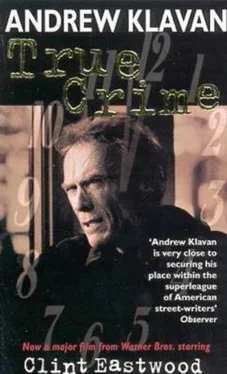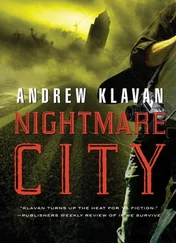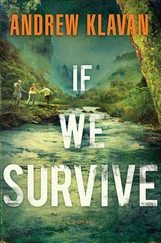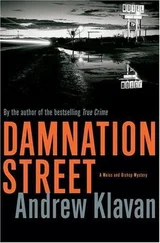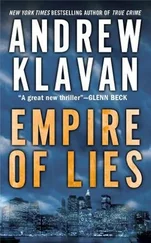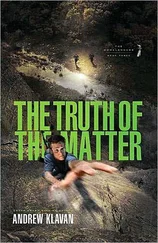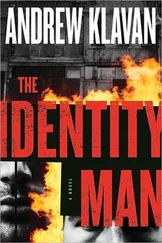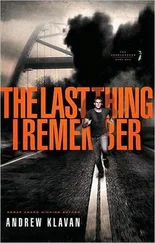Andrew Klavan - True Crime
Здесь есть возможность читать онлайн «Andrew Klavan - True Crime» весь текст электронной книги совершенно бесплатно (целиком полную версию без сокращений). В некоторых случаях можно слушать аудио, скачать через торрент в формате fb2 и присутствует краткое содержание. Жанр: Криминальный детектив, на английском языке. Описание произведения, (предисловие) а так же отзывы посетителей доступны на портале библиотеки ЛибКат.
- Название:True Crime
- Автор:
- Жанр:
- Год:неизвестен
- ISBN:нет данных
- Рейтинг книги:4 / 5. Голосов: 1
-
Избранное:Добавить в избранное
- Отзывы:
-
Ваша оценка:
- 80
- 1
- 2
- 3
- 4
- 5
True Crime: краткое содержание, описание и аннотация
Предлагаем к чтению аннотацию, описание, краткое содержание или предисловие (зависит от того, что написал сам автор книги «True Crime»). Если вы не нашли необходимую информацию о книге — напишите в комментариях, мы постараемся отыскать её.
True Crime — читать онлайн бесплатно полную книгу (весь текст) целиком
Ниже представлен текст книги, разбитый по страницам. Система сохранения места последней прочитанной страницы, позволяет с удобством читать онлайн бесплатно книгу «True Crime», без необходимости каждый раз заново искать на чём Вы остановились. Поставьте закладку, и сможете в любой момент перейти на страницу, на которой закончили чтение.
Интервал:
Закладка:
Then I turned around. I saw Bob’s lips press together hard.
“Uh … why didn’t she hear the shots?” I asked.
I saw Bob’s lips turn white. “The shots,” he said softly.
I felt my face get hot, I felt a prickling under my hairline. “Sorry, I just … The woman in the, in the-what-chamacallit-the parking lot. Jane said she didn’t know what was going on but … I mean, if she was right outside, she must’ve heard the … the shots …” My voice trailed away. A lump of nauseous fear corkscrewed from my stomach to my throat.
Bob’s cheeks had reddened.
You have to understand. The Reddening of Bob Findley’s Cheeks was a phenomenon regarded with terror by every single member of the city room staff. They had good reason too. When Bob’s cheeks turned red, it meant that you had enraged him. Despite his lifework of calm, his caring, his ever-best efforts at fairness and decency, you and you alone had managed to throw a match into the gas tank of his wrath. This was not a happy thing. There were stories. About what he did to people, the people who enraged him. These were not stories about explosions or tirades. Bob did not explode. He didn’t shout or throw furniture. But if you enraged him-if you enraged him often enough, or deeply enough-he would get you for it. Quietly, surely. He would erase you from the Book of Life. Newspaper lore held that it had actually happened once-to a tough woman veteran who had continually questioned his youthful judgment. The old folks said she was now a television reviewer in Milwaukee, though maybe they exaggerated to get the full horror-story effect. No one wanted to find out for sure, though-and neither me, especially under the circumstances. When Bob’s cheeks flared their deep scarlet now, my teeth clamped shut. My head jerked back a little as if a grenade had burst at my feet.
And Bob, quiet, red-faced, practically vibrated in his chair. Slowly, very slowly, he said: “I don’t know, Steve. I don’t know if she would’ve heard the shots or not. Maybe she did. I don’t know. What I would like you to do please is to get an interview with Frank Beachum about his feelings today. Then I would like you to write that interview up as a human interest sidebar. Do you think you can just do that please?”
“Yup, yeah, absolutely, you bet, sure Bob, right,” I said.
“Thank you,” said Bob.
He took up the papers on his desk again and studied them, dismissing me. Jane March, wide-eyed, puffed her cheeks and blew out a breath as much as to say, “Wow!”
Me, I pivoted on my heel and zipped right back up that aisle again.
“Right,” I murmured as I beelined for my desk. “Human interest sidebar. Okey-dokey, absolutely, right away, sure, right.”
4
I dropped thankfully into my swivel chair and punched on my terminal. While the lights came up, my hand strayed to my shirt pocket. I drew my cigarettes halfway out before I thought to resist the urge. The no-smoking policy. Bob had helped to institute the no-smoking policy. He was very caring about our health, was Bob. I did not think I would violate the no-smoking policy today.
I tapped Beachkil into the keyboard. The file popped up on the screen. There was a selection of stories, from the first day through the trial. I scrolled through them quickly, picking out the basics. This was what I came up with:
On July fourth, six years ago, a twenty-year-old coed named Amy Wilson was shot in the throat with a.38 as she stood behind her counter at Pocum’s grocery in Dogtown. She was six months pregnant at the time. Both she and the baby died. A scholarship sophomore at Washington University, she had been married to a law student, Richard Wilson, and was working at the grocery for the summer to help support them.
Just before the shooting took place, Dale Porterhouse, a certified public accountant who was passing through the neighborhood, had asked to use the grocery’s bathroom. Later, he testified at Frank Beachum’s trial. As he was entering the bathroom, he said, he had heard Amy Wilson tell Beachum that she could not pay him the fifty dollars she owed him for some work he had done on the carburetor of her aging Impala. Moments later, from inside the bathroom, Porterhouse said he heard Amy scream out, “Please not that!” The scream was followed by a single gunshot. Porterhouse had zipped up his pants and run to the entryway at the rear of the store just in time to see Frank Beachum racing out the front, he said. Beachum, he said, was clutching a pistol in his right hand. Porterhouse picked him out of a police lineup that same day.
Porterhouse said he had run to the pregnant woman where she lay on the floor. She was convulsing and making gurgling noises, he said, though the medical examiner testified she was probably already dead. Porterhouse said there was blood pumping out of the bullet wound in her throat and her eyes were open very wide. He said she looked terribly frightened.
Nancy Larson, a housewife and mother of three, also testified for the prosecution. She had been on her way to a picnic, she said, and had pulled her blue Toyota into the lot to buy a soda from the machine against the grocery’s wall. She testified that she nearly backed right into Beachum as he ran to his car. She called out the window to apologize. He didn’t even turn around, but only lifted his hand in a wave at her. Mrs. Larson did not see Beachum’s gun, but the police found it later lying by the curb, as if it had been flung away through a car window. It was unregistered and filed clean; they could not trace its provenance.
The case, it seemed, had gotten fairly wide coverage. The neighborhood people had liked Amy. She was attractive, well-mannered and intelligent. The news stories about her murder were all written in a fine tone of moral outrage. Journalists love to express moral outrage; they think being outraged proves they are moral. Politicians are like that too. Wally Cartwright, the assistant circuit attorney who prosecuted the case, had expressed his outrage by announcing he would seek the death penalty. He made the announcement with his boss, Cecilia Nussbaum, in front of the old domed courthouse where the Dred Scot case began. Cartwright and Nussbaum wanted to make the point that capital punishment was for all criminals, black or white. The Supreme Court had recently noticed the preponderance of blacks on death row, and so had the black voters. The prosecutors somehow managed to sound outraged about Frank Beachum and Dred Scott at the same time.
That was it, that was all I needed to know. Ten minutes after I’d turned my terminal on, I clicked the Beachkil file shut and tilted back in my chair. I thought about Amy Wilson. Attractive, intelligent, well-mannered , I thought. They were not very interesting words. They didn’t exactly conjure the little girl her parents had raised or the woman her husband curled up against at night. Erased by a gunshot for fifty bucks. Please not that! I thought about Michelle and her thin bones and that windshield and how the hospital heart machine would flatline while the nurses scrambled around her uselessly. What would we write about her? I wondered. Irritating little college kid . I smiled, thinking about the way she was, and my gaze dropped idly to the spot on my desk where she had pressed her angry fist the night before. Bob Findley had put the Beachum trial transcript in a box just there, by the side of my keyboard. Idly, I stretched out a finger, hooked the box by the edge and drew it onto my lap. So how come the Larson woman didn’t hear the shots? I thought.
“Want coffee, Ev? It’s back in fashion as a late morning pick-me-up.”
Bridget Rossiter, the Trends editor, was walking past behind me. She was a compact unit of energy, with a squirrelly tangle of red hair surrounding her freckled face. Her slacks and pullover showed off her figure: She had breasts large enough to have inspired an entire subspecies of city room commentary. She was heading for the hall.
Читать дальшеИнтервал:
Закладка:
Похожие книги на «True Crime»
Представляем Вашему вниманию похожие книги на «True Crime» списком для выбора. Мы отобрали схожую по названию и смыслу литературу в надежде предоставить читателям больше вариантов отыскать новые, интересные, ещё непрочитанные произведения.
Обсуждение, отзывы о книге «True Crime» и просто собственные мнения читателей. Оставьте ваши комментарии, напишите, что Вы думаете о произведении, его смысле или главных героях. Укажите что конкретно понравилось, а что нет, и почему Вы так считаете.
